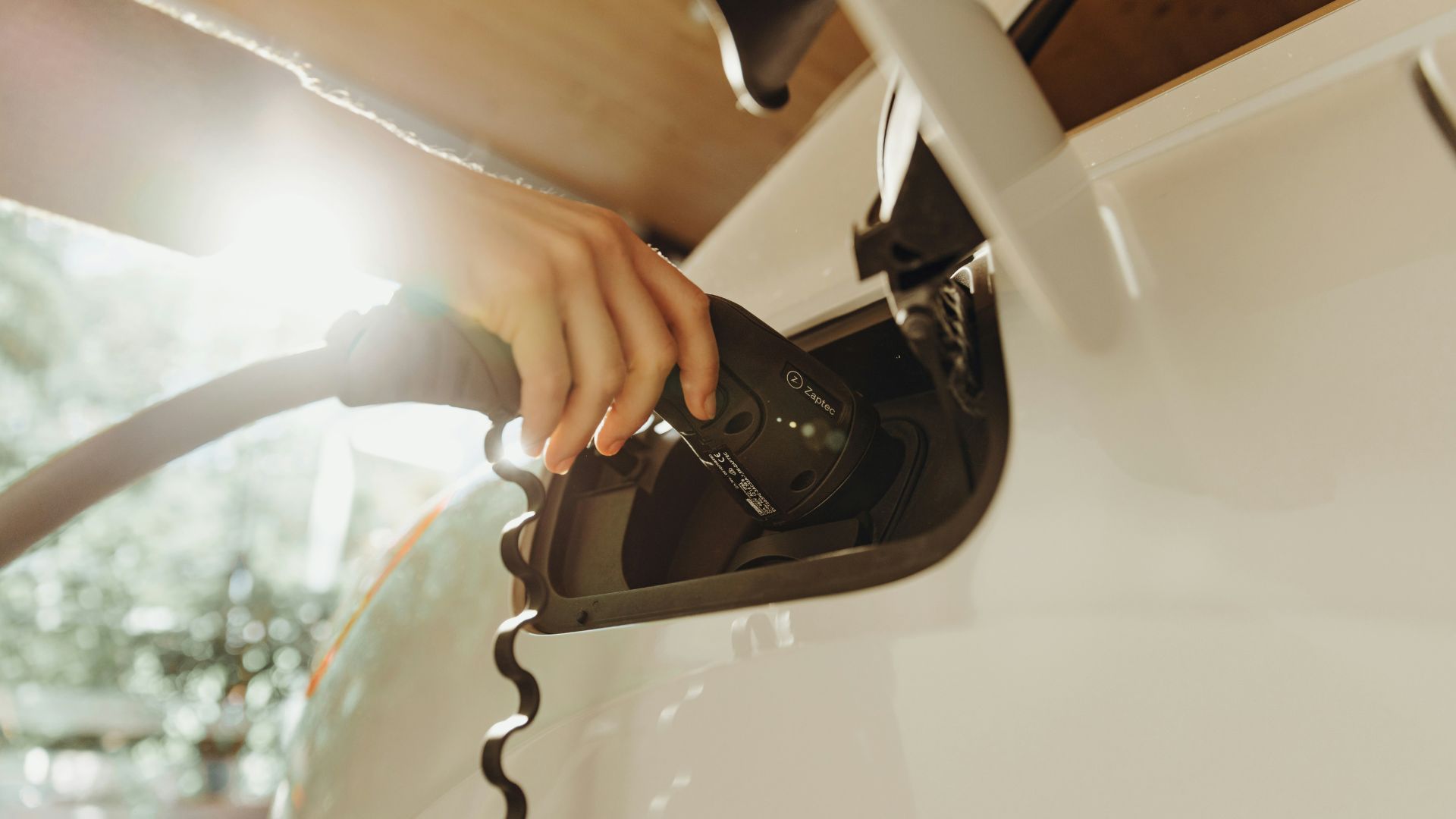EV Charger Installation Cost
How Much Does It Cost to Install an EV Charger at Home?
So, you’ve embraced the electric lifestyle.
Maybe you’re already driving a Tesla, Rivian, or Ford Lightning—or maybe you’re just ready to ditch gas forever. Either way, one big question usually comes up first:
💡 How much does it cost to install an EV charger at home?
This guide explains typical EV charger installation costs, what affects the price, and why a professional install is worth the investment.
Average EV Charger Cost for Homeowners
Most Colorado homeowners spend between $800 and $2,500 to install a Level 2 charging station. Your final price depends on the charger itself, labor, permitting, and electrical work.
Here’s a general breakdown:
Charger Equipment$400 – $1,200
Installation & Labor$400 – $1,300+
Permitting Fees$50 – $300
Every home is unique. Panel capacity, wiring distance, and installation complexity all play major roles in the final cost.
👉 Want the full process explained? Check out our EV Charger Install Guide for a step-by-step walkthrough.
What Affects EV Charger Installation Cost?
1. Electrical Panel Capacity
Your panel must be evaluated before installation. If it’s near capacity, you may need:
- Panel Upgrade: $1,000 – $3,000 depending on size and complexity.
- Load-Shedding Equipment: A few hundred dollars, if permitted in your jurisdiction, can sometimes eliminate the need for a full upgrade.
2. Distance and Routing Complexity
Long wiring runs or finished walls increase labor costs. Installing conduit across a garage ceiling is straightforward, but fishing wires through drywall or basements adds time and expense.
3. Charger Type and Location
- Level 1 (120V outlet): Slow, about 1–2 miles of range per hour.
- Level 2 (240V dedicated circuit): 10–40+ miles of range per hour, best for daily home use.
- Level 3 (DC fast charging): Commercial only; costs $30,000+ and isn’t suitable for homes.
Outdoor chargers may also require weatherproof equipment and enclosures.
4. Permit Requirements
Colorado requires a permit for EV charger installation. Skipping this step can:
- Void insurance coverage
- Cause issues during home resale
- Lead to fines or required removal
Go EV Colorado handles permitting for you so everything is safe and compliant.
Why a Home Charger Is Worth the Investment
A Level 2 charger is more than just convenient—it’s an upgrade that adds value to your property.
- Marketability: Buyers increasingly want homes with EV-ready infrastructure.
- Code Compliance: Colorado building codes now require new homes to be “EV-ready.”
- Future-Proofing: Many households will soon have multiple EVs, making home charging essential.
According to Realtor.com, homes with EV chargers often sell faster and at higher prices.
Can You Install an EV Charger Yourself?
Technically, yes. Realistically, please don’t.
Working inside a live panel is dangerous and requires a permit in Colorado. Hiring a licensed electrician ensures:
- Safe, professional installation
- Compliance with NEC Article 625
- Proper permitting and inspection
- Valid insurance coverage
At Go EV Colorado, our certified electricians handle every detail—from load calculations to final inspection—so you don’t have to risk mistakes.
Tax Credits and Rebates in Colorado
Good news: your installation may cost less than you think.
As of 2025, homeowners may qualify for:
- Federal Tax Credit: 30% of installation costs, up to $1,000
- Colorado Utility Rebates: Up to $1,300 through Xcel Energy and other local utilities
- Municipal Programs: Additional incentives may be available depending on your city or county
Go EV Colorado helps customers identify and apply for rebates so you get the maximum savings.
How Long Does Installation Take?
- Straightforward installs: 2–4 hours
- More complex projects: 1–3 days if panel upgrades or long conduit runs are needed
Our process includes a site assessment, load calculation, permitting, installation, and final inspection—all handled by licensed professionals.
Frequently Asked Questions
How much does it cost to install a home EV charger?
Most homeowners pay between $800 and $2,500.
What factors affect cost?
Panel capacity, wiring distance, charger type, wall access, and permit fees.
What’s the difference between Level 1 and Level 2 chargers?
Level 1 uses a regular outlet and is very slow. Level 2 requires a 240V circuit and charges much faster.
Can I install a charger outdoors?
Yes, with weatherproof equipment and proper electrical protection.
Are rebates available?
Yes—federal and state incentives can offset your installation costs.
Does a charger increase home value?
Yes, EV chargers make homes more appealing and meet modern building standards.
Ready to Charge Ahead?
At Go EV Colorado, we make home charging simple and stress-free. Whether you’re installing a Tesla Wall Connector, a ChargePoint unit, or another Level 2 charger, we’ve got you covered.
Our services include:
✅ In-home assessments
✅ Load calculations
✅ Equipment sourcing
✅ Permit handling
✅ Expert installation
✅ Rebate assistance
📞 Ready to upgrade your home with an EV charger? Contact Go EV Colorado today to schedule your installation.

